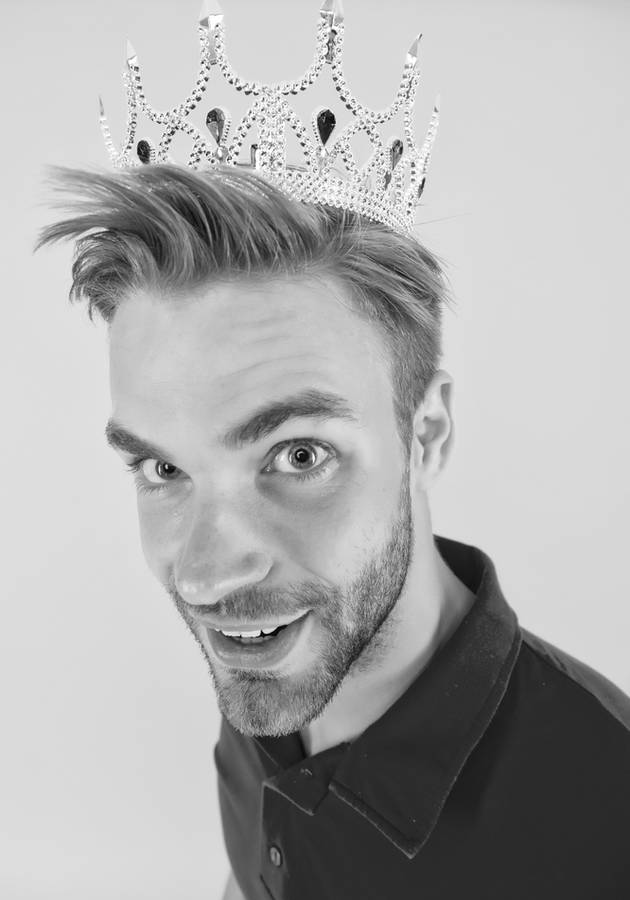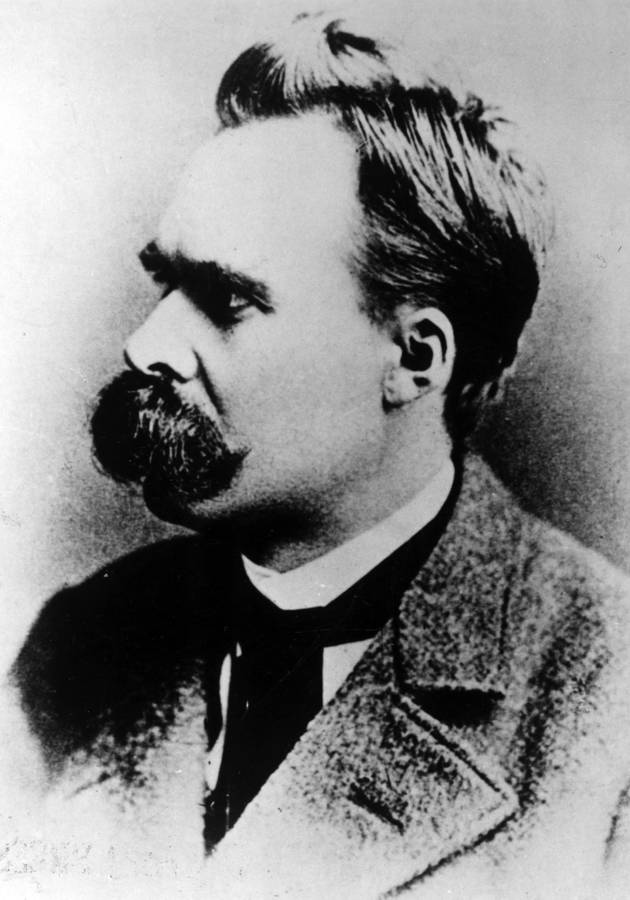What keeps you from conquering your dreams? Do you believe that you must fulfill a purpose in your life, but you never ran after it? Many people go through this! That may be your resistance - that feeling that makes you feel fear or doubt - tries to stop you from reaching your life goals!
The War of Art will teach you how to overcome your resistance and how to conquer your biggest dreams! Among many other things, author Steven Pressfield teaches us how hierarchies can ruin his creativity, and also tells the story of how Oprah Winfrey created the most popular talk show in the United States in just a few months.
Accomplish your life purpose and be successful in your accomplishments. Learn to recognize and overcome your obstacles and discover how to use fear in your favor!
Resistance Teaches You To Achieve Your Objectives
Have you ever had an ambitious dream but hesitated to go after it? You wanted to write a great novel or start a new business, but did a certain feeling bother you?
This feeling is called resistance - it is the force that prevents us from realizing our dreams and conquering what we want.
Anything new in our routine that takes us away from the usual will naturally be accompanied by resistance. Resistance is negative and is always opposed to change or anything new. For example, if you feel a desire to start a new business, resistance will be the voice that induces you to stay in your current job and to take no risky action on a project that may fail. If you want to start a new diet, resistance will be the voice that will tell you, "You can start dieting tomorrow."
This feeling of resistance is normal. It is impersonal, universal and affects all people, being present in various fields of interest, from work to a simple diet. We need to accept that resistance is natural and stop thinking that we are personally affected by it.
Resistance affects even experienced people in what they do. For example, actor Henry Fonda, even after he was older, vomited before all of his theater performances. Being a famous and successful actor did not stop him from feeling fear every time he needed to get on a stage.
Resistance can manifest itself in many ways. Fear of failure, doubt or procrastination are different forms of resistance. We can learn how to defeat it by adjusting our focus constantly on our dreams and commitments, accepting the challenge that resistance is a natural and necessary part of the journey.
Use Resistance And Fear In Your Favor
Is there anything in your life that you feel you were meant to do? Maybe you want to write short stories or design furniture. That is your call: the great passion that satisfies the hunger of your soul.
We all live our days in our regular lives, but we have another life not lived where we have an unfulfilled dream.
Why are you waiting for the future to come and start working on that dream? Probably because you feel fear and doubt, which are forms of resistance. Resistance keeps us from fulfilling our unfulfilled dreams. For example, if your dream is to write a great novel, you will feel fear - perhaps a fear of being rejected by editors or of not exceeding other people's expectations (or your own). This fear can keep you from even trying to write.
Instead of letting that resistance stop you, use it in your favor. It is okay to feel fear or doubt - these emotions mean that you care about your dream. You would not be afraid of failing at anything if you were not in love with her. Fear can be a good indication that your dream is important enough for you to pursue.
Even successful people are afraid. For example, TV show host Inside the Actors Studio, James Lipton, always asks his guests why they choose certain roles. Many professionals respond that they choose certain roles because they are afraid. They recognize that fear indicates a passion for these roles, and then they believe they should seek them out.
Like these actors, you can use fear to motivate yourself. Do not be controlled by it and doubt - recognize that these emotions can help you orient yourself toward the dreams that are most important to you.
Be A True Professional
How are you running after your dream? It is a mistake to try to work on it for a few hours once in a while. Try to think of how you can work on it constantly. Be immersed, as if it were a full-time job.
You can be creative about how you use your time for your dreams, even if you still have a normal job. For example, Quentin Tarantino did not study at a film school but worked in a movie rental store. He watched films at work and used his "free time" to direct small projects. One of these times, one of his projects was destroyed by a fire. Instead of feeling defeated, Tarantino realized that although he had never finished the film, the project had taught him far more than any film school could teach.
A person like Tarantino, who is dedicated and does not give up on problems and difficulties, is a "professional." Your commitment to your art proves this.
You can also transfer skills from your job to your dream, even if your job is very different. Are you going to work every day on time? Do you keep working even when you have distractions in your personal life? Probably yes. The self-discipline skills you perfect in work can be applied to your passion.
Working full time to fulfill your dream will not always be fun. However, if you can support your work day, even when you do not like it, then you can also use this ability to fulfill your dream.
Somerset Maugham was once asked if he wrote according to a timeline. He replied, "I only write when I am inspired." Then he added: "Fortunately I am inspired every morning at 9 o'clock. "
That is an important truth about professionals: they do not sit around waiting for inspiration. On the contrary, they work hard every day.
You Don't Need To Work Alone
Everyone feels fear and doubt sometimes, and this is normal. Because we can not permanently eliminate these negative emotions, we must learn to fight them. You can do this by having self-knowledge and by understanding your calling better than anyone else.
To learn about yourself, you must know your limitations. You do not have to do everything yourself. When you understand your limitations, you realize that it will be better to work with the help of others. A good way to do this is by surrounding yourself with other professionals.
For example, Terry Gilliam, a famous director, works on solo projects and is also a member of Monty Python. He once offered the following film advice to a newcomer named Quentin Tarantino: Being a good director does not mean doing everything, but it means knowing when to delegate power to other talented people, such as actors, cinematographers, and producers. A great director must know the limits of his art, to know what areas can benefit from the contributions of other people.
A professional also knows when to call for help. Knowing how to ask for guidance can help you continue to develop your art. For example, even at the height of his golf career, when he was considered the best golfer in the world, Tiger Woods still had a coach.
You can always continue to learn about your art, even if you are already very talented. Professionals learn how to master this process of constant learning. Think of Madonna: she was able to maintain a long and enduring career in pop because she was constantly working to reinvent her image so that her songs and performances were not boring or predictable.
Although the singer is considered one of the best pop singers in the world, she understands that being a professional means that you must constantly learn about what you do.
Be Persistent, Organized And Patient
Let's imagine your dream is to write a book and you develop the self-discipline of sitting and writing every day. Soon you will realize that the resistance does not disappear immediately. In fact, resistance may even increase if you keep writing, making you doubt your passions. However, you can weaken the resistance by being persistent and organized.
To be a professional, you need to be organized and patient. Do not set unrealistic goals like writing a novel quickly in a week. Try to focus on the process of your work, rather than just figuring out the result. Focusing on the process, instead of trying to reach the goal quickly, will help you weaken the resistance. It does not matter if the process is slow, this is normal. You need to be patient if you want the best results.
As part of the focus process, also learn to accept that you will always face adversities on the way. Instead of giving up when you need to tackle a problem, try to see new challenges as steps to be taken to reach your goal.
Oprah Winfrey is an excellent example of a professional who has overcome challenges. Earlier in his career, few people expected a talk show hosted by a black woman to gain followers as the camp was dominated by white men. She also wanted to focus her program on the personal lives and emotions of her guests, which was very unusual at the time.
However, Oprah remained dedicated to her vision. In a few months, she created the most watched morning talk show in the United States and helped bring to light many uncontrollable issues such as obesity and bullying. Instead of giving up after much criticism, Oprah was motivated to work even harder, as a true professional would.
Be Dedicated And Work Hard
While everyone needs to face a negative resistance force, the good news is that there are also positive forces to help us.
The inspirational muses are one of the positive forces. Homer, in the epic poem "The Odyssey" of Homer, writes that there are nine goddesses called Muses, who inspire creativity and ideas in artists. They present ideas to dedicated artists and help them defeat resistance. Homer himself resorted to them to be able to tell the story of Ulysses, a ten-year struggle to return home after the Trojan War.
We also need to try to "invoke" our muses to find the strength to defeat the resistance. The only way to do this is through dedication and hard work.
Hard work will always make you more open to other positive forces that are not in your control, and that can help you defeat the resistance. An example of this is what Plato described as the "madness" that controls an artist or craftsman.
This madness is like a supercharged creativity - the artist is possessed by his art and the object of his creation. This force moves the artist away from daily habits, helping to leave the resistance behind.
Forget Hierarchies
Whether in the workplace, on Wall Street, Hollywood or even in high school, everyone had to contend with the structure of social hierarchies. Hierarchies exist everywhere, but what they have in common is the opposition to change, always dictating a fixed place for each of its members. Most people define themselves and are defined by the hierarchies in their lives, which are usually very limiting.
For example, many people have difficulties in workplaces that do not give creative freedom to employees. The hierarchy of work keeps everyone in a particular and particular role. In these environments, "thinking out of the box" is not a good idea.
When we are working within a hierarchy, we are forced to censor our actions, trying to guess what the public (or the client) wants from us. We are forced to evaluate our success according to our place in the hierarchy, and therefore we are forced to try to reach higher places within it. Also, hierarchies encourage us to see other people as means to our goals, not as individuals.
Professionals are not defined by their positions in a hierarchy. On the contrary, professionals fight against hierarchies, being true to their arts and always working to improve.
For example, Steve Jobs, a noted professional, was a known perfectionist and believed in his vision. He insisted on deciding everything about the products he developed, from designing to how customers would interact with them. In working to realize his vision, instead of trying to guess what others would like, he created the Apple company.
Another example can be found in the German author Rainer Maria Rilke, who told a young poet that he should write to please himself, not critics. He spoke of an important truth about the professionals: when your goal is to make you proud of your work, the work will be better.
Have An Adequate Place To Work
Whether writing a song or directing an Oscar-winning movie, each of us has a specific calling. And the place where professionals work in their calling is their territory.
For example, in the case of former Mister Universe Arnold Schwarzenegger, bodybuilder, actor and politician, his territory is the academy. So how do you know where your territory is?
First, your territory is where you feel "sheltered." In this place, you are satisfied and challenged, as if you are improving yourself when you spend your time and work there. You can bet that every time Schwarzenegger went to the gym, he felt much better after than before!
Second, your territory is the environment in which only you work hard: it is your place and no one else's. Of course, many other people used the gym as well, but Schwarzenegger made that space yours, working out there every day.
Finally, your territory is an inexhaustible resource. The only limit to how much your territory can give you is determined by how much you strive there. Consider Woody Allen, whose territory is not physical like Schwarzenegger's, but it's the realm of movies. Allen has written 90 screenplays and directed nearly 50 movies! Working hard on his territory, he was given more opportunities to be creative and was able to work even harder and expand it.
Like Woody Allen, you can model your territory through hard work and dedication.
Final Notes
Were you born to write? Were you put on earth to be a painter or a scientist? This question can only be answered with attitude. If your purpose is to find a cure for cancer or write a symphony, and if you do not do any of that, you are destroying yourself. You are destroying the planet. Your creative work is not a selfish act, but a gift to the world. Be sure to contribute your part. Give the world your best.
It doesn't matter if your goals are enterprising or artistic, if you want to be your best version, you need to do your job regardless of fear. Find out what your territory is and work on it. Because if you want to live a happier, creative and inspiring life, you have to do your part! You need to leave the resistance aside and become a dedicated professional, prepared and willing to do your job!
12min Tip
This microbook talks a lot about creativity, so how about checking the microbook for Stealing Like an Artist? There, you will learn some creative triggers and some creative patterns.





























